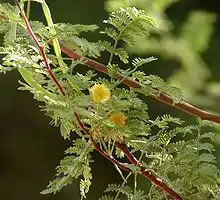枝
| ||||||||
Translingual
Han character
枝 (Kangxi radical 75, 木+4, 8 strokes, cangjie input 木十水 (DJE), four-corner 44947, composition ⿰木支)
References
- KangXi: page 516, character 12
- Dai Kanwa Jiten: character 14557
- Dae Jaweon: page 904, character 6
- Hanyu Da Zidian (first edition): volume 2, page 1165, character 7
- Unihan data for U+679D
Chinese
| simp. and trad. |
枝 | |
|---|---|---|
| alternative forms | 支 | |
Glyph origin
| Historical forms of the character 枝 | |
|---|---|
| Shuowen Jiezi (compiled in Han) | Liushutong (compiled in Ming) |
| Small seal script | Transcribed ancient scripts |
 |
 |
| Old Chinese | |
|---|---|
| 支 | *kje |
| 枝 | *kje |
| 肢 | *kje |
| 汥 | *kje, *ɡe, *ɡres |
| 衼 | *kje |
| 馶 | *kje, *qʰjes, *kes, *ɡe |
| 鳷 | *kje |
| 忮 | *kjes |
| 伎 | *kjes, *ɡe, *ɡreʔ |
| 豉 | *ɡjes |
| 翅 | *qʰjes |
| 翄 | *qʰjes, *ɡe |
| 妓 | *kre, *ɡreʔ |
| 庋 | *kreʔ, *kʷreʔ |
| 跂 | *kʰeʔ, *kʰes, *ɡe |
| 蚑 | *kʰes, *ɡe |
| 吱 | *kʰes |
| 岐 | *ɡe |
| 歧 | *ɡe |
| 鬾 | *ɡre, *ɡres |
| 技 | *ɡreʔ |
| 芰 | *ɡres |
| 攱 | *kʷreʔ, *kʷres |
| 庪 | *kʷreʔ |
| 頍 | *kʰʷeʔ |
| 屐 | *ɡreɡ |
Phono-semantic compound (形聲, OC *kje) and ideogrammic compound (會意) : semantic 木 (“tree”) + phonetic 支 (OC *kje, “branch”).
Pronunciation 1
Definitions
枝
Synonyms
- (branch):
Compounds
|
|
|
Pronunciation 2
Further reading
- “Entry #4211”, in 臺灣閩南語常用詞辭典 [Dictionary of Frequently-Used Taiwan Minnan] (in Chinese and Min Nan), Ministry of Education, R.O.C., 2011.
Japanese

Readings
Etymology
Inherited from earlier yeda, from Old Japanese, from Proto-Japonic *yonta. Cognate with Kunigami 枝 (ゆだー, yudā), Miyako 枝 (ゆだ, yuda), Okinawan 枝 (いぃだ, yida), 枝 (ゆだ, yuda), Yaeyama 枝 (ゆだ, yuda), Yonaguni 枝 (どぅだ, duda). The vowel change is irregular.
Coordinate terms
- 葉 (ha, “leaf”)
Korean
Hanja
枝 • (ji) (hangeul 지, revised ji, McCune–Reischauer chi, Yale ci)
- This term needs a translation to English. Please help out and add a translation, then remove the text
{{rfdef}}.
Kunigami
Kanji
枝
Etymology
Inherited from Proto-Ryukyuan *yoda, from Proto-Japonic *yonta.
Pronunciation
- IPA(key): /judaː/
References
- “ゆだー【枝】” in JLect - Japonic Languages and Dialects Database Dictionary, 2019.
Miyako
Kanji
枝
Etymology
Inherited from Proto-Ryukyuan *yoda, from Proto-Japonic *yonta.
Pronunciation
- IPA(key): /juda/
References
- “ゆだ【枝】” in JLect - Japonic Languages and Dialects Database Dictionary, 2019.
Okinawan
Etymology
Inherited from Proto-Ryukyuan *yoda, from Proto-Japonic *yonta.
Pronunciation
- IPA(key): /jida/, /juda/
References
- “いだ・いぃだ・ゐだ・ゆぃだ【枝】” in JLect - Japonic Languages and Dialects Database Dictionary, 2019.
- “ゆだ【枝】” in JLect - Japonic Languages and Dialects Database Dictionary, 2019.
Vietnamese
Yaeyama
Kanji
枝
Etymology
Inherited from Proto-Ryukyuan *yoda, from Proto-Japonic *yonta.
Pronunciation
- IPA(key): /juda/
References
- “ゆだ【枝】” in JLect - Japonic Languages and Dialects Database Dictionary, 2019.
Yonaguni
Kanji
枝
Etymology
Inherited from Proto-Ryukyuan *yoda, from Proto-Japonic *yonta.
Pronunciation
- IPA(key): /duda/
References
- “どぅだ【枝】” in JLect - Japonic Languages and Dialects Database Dictionary, 2019.